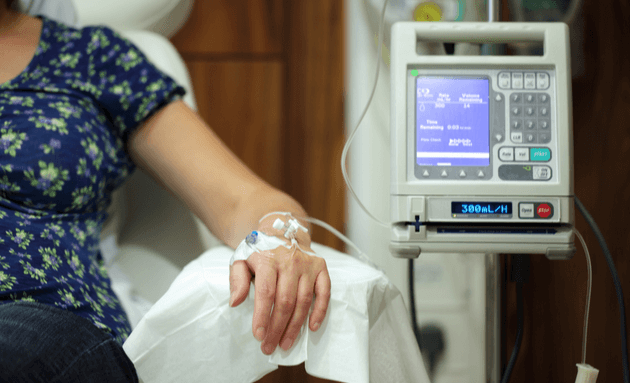Esophageal Cancer And What You Should Know

We all call it the 'food pipe' but medically, esophagus is a muscular tube of about 10 inches that connects the mouth to the stomach, taking down all the things we swallow. Cancer of this organ occurs when cancer cells develop in this tube. It starts from the inner layer of the esophagus and can spread across the other layers, gradually affecting other parts of the body.
It is the fourth most-common cause of cancer-related deaths in India. Read on to know some of the most important things about esophageal cancer to detect and cure it in the initial stages:
Types of Esophageal Cancer
There are mainly two types - Squamous Cell Carcinoma and Adenocarcinoma. Squamous Cell Carcinoma is cancer developing on the squamous cells in the inner lining of the oesophagus and can spread along the entire tube. The Adenocarcinoma typically occurs in the lower oesophagus near the stomach, mostly due to acid exposure to the lower oesophagus.
What Are The Possible Causes?
There are numerous factors that can make you susceptible and the most common ones are:
- Smoking or excessive intake of tobacco
- Extreme alcohol consumption
- GERD, or Gastroesophageal Reflux Disease, that causes acid from the stomach to retract into the oesophagus. Over time, stomach acid in the oesophagus can cause significant changes in the cells, increasing the risk of Adenocarcinoma
Symptoms of Esophageal Cancer

This cancer may not show any outright symptoms in the initial stages. Therefore it is best to keep an eye out when you have:
- Difficulty or experience pain when swallowing
- Significant weight loss
- Pain in the chest, particularly behind the breastbone
- Coughing and hoarseness
- Indigestion and heartburn
How Is It Diagnosed?
The cancer needs to be diagnosed and treated with proper medical attention and by experts. It is not advised to go with self-diagnosis and panic without accurate diagnostic procedures.
Consult your doctor as soon as you see even the faintest signs or symptoms of cancer to avoid risking it moving on to critical stages. Your doctor will study your medical history; suggest some blood tests and X-rays that can range from an Endoscopy, Biopsy, to Barium swallow X-ray.
Other tests include CT scans, PET or the Positron Emission Tomography, Laparoscopy and others, depending on your symptoms and to plan your treatment further.
What Is The Treatment Plan?

There are a number of treatment methods of esophageal cancer, and your doctor is the best person to suggest the right method, based on the status of your cancer. The 4 main approaches include:
- Surgery: This will involved removing the cancerous part with a surgical procedure
- Chemotherapy: Different medications are either injected into a vein or consumed as tablets or capsules
- Radiotherapy: High-energy X-rays or electrons are used to treat the cancer cells
- Chemoradiation: A combination of chemotherapy and radiotherapy is used to specifically treat certain stages of oesophageal cancer
Life After Cancer Treatment

Recovery is a gradual process and will require you to be emotionally and mentally positive for the best outcomes. Changes in dietary habits, meditation and positive thinking are some of the paths that lead to recovery. A team of after-care specialists will help you on this journey. Family and peer support, and healthy lifestyle changes will only make you stronger, sooner.
If you feel the need to get assistance in case of any experiential symptoms, book an appointment with our experienced and trained oncologists and surgeons at the Medanta Cancer Institute, who ensure you that you receive the best care and guidance.






